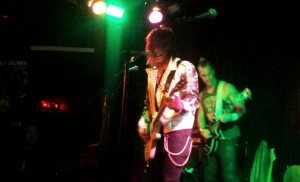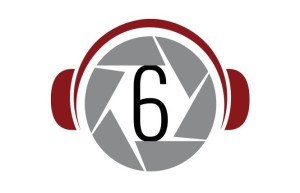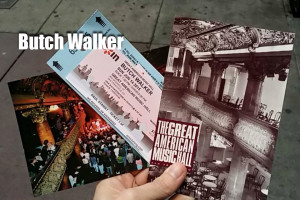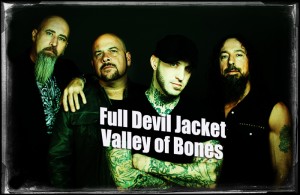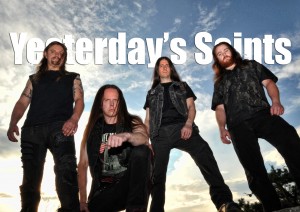The Long Farewell Journey: Part Two
11 min readIt’s over before it began.
It was a violent day for my dad on Monday, October 17. His body would frequently convulse; his face would grimace in a manner that indicated pain and terror. Terror was more the overreaching emotion I believe my dad was experiencing. He could barely speak. He asked where he was and he told my mom that he loved her.
The doctor had prescribed large incremental changes to the amount of morphine my dad was receiving. We started the day at 190 milliliters an hour, which is by itself a large amount of morphine. By 1:00 PM, he was at 390 milliliters an hour. He was receiving huge amounts of Valium injected into his IV line every four hours. Nothing was touching his pain or his fear.
The hospice coordinator assigned to my dad was grasping at straws to relieve my dad’s misery. Questions about past drug and alcohol abuse and his mental health, questions that would have seemed insulting under normal circumstances, were fielded with matter of fact, emotionless replies by my mom and me. Then the hospice coordinator decided to pursue a spiritual tack to address my dad’s agony. We tried to call my dad’s pastor, but he was unavailable. The hospital’s chaplain, a friend of mine, was contacted and he said he’d come up within five minutes. Ten minutes past, and the nurse came in to administer another dose of Valium pushed into his IV.
He started to relax a bit. This was short lived, but there was a change to the pattern of my dad’s breathing. He would convulse and grimace, but there was a profound change. Twenty minutes after the Valium was in his body, he jerked back his head. He rolled his eyes up into his head. The sounds of apnea and agony changed. He panted for air and then let out an unidentifiable sound. I knew something was up and I called for the hospice nurse twice. She ran into the room. My dad sighed and then relaxed the grip he had on my hand. I looked at my mom and the hospice nurse. We hit the nurse call button and a RN came into the room. She listened for my dad’s heartbeat. There was no sound. My dad was declared dead at 2:16 PM.
My sister and the hospital chaplain arrived in the room just in time to witness my dad’s last breath. Two months of worrying when my dad was going to die came to an abrupt end. The agony of the mesothelioma was over. The time spent by his bedside, whether it was at his home or in the hospital, was now a thing of the past. The chaplain and the nursing staff allowed us plenty of time to grieve the death of my dad. We all held hands and recited the 23rd Psalm. This was the hardest thing for me. My dad certainly wasn’t allowed to rest beside still waters, nor did the Lord’s staff comfort him. The narcotics sure as hell didn’t comfort him. I felt rage as my friend read this traditional psalm.
As I write this story, I wonder about the order of events I should write, and what events I should include and which I should omit. So much has happened since August 24th. This was supposed to be a year of bi-weekly articles chronicling my dad’s fight with mesothelioma, a cancer of the mesothelium, which lines the lungs and chest cavity. Things changed so often and dramatically that I couldn’t keep up. It wasn’t two months since we received the diagnosis until his death at 66. I feel like I have aged ten years in this two-month span.
I will tell you of my sister’s heroic efforts to provide first-line nursing care and comfort to my dad. She moved in with my parents and placed her nursing education on hold. She brought her four children into my parent’s home and managed to run three kids to two different schools, do the laundry, money management, cooking, shopping and cleaning for two families while managing my dad and my mom’s health care. My mom suffers from congestive heart failure, diabetes, and a pelvic fracture, which occurred in June. My sister spent many a night without sleep tending to my dad’s intractable pain and then she would take care of my mom and dad during the days. When my dad was trying to decide what to do with his car, I suggested that my sister should get the car as a reward for the hard work she put forth on my parent’s behalf.
Then there were the deathwatches. There was at least four times that the hospice nurses told us that we should tell everyone that if they want to see dad before he dies, they should come to the house or the hospital within the next 24 hours. I would spend the night at my parent’s house during most of those vigils. The closest thing I can think of to describe my feelings during these deathwatches comes from the Iranian Hostage Crisis of 1979. The hostages reported that on a few occasions they were told they would be executed. They would have their hands and feet bound, and they were lined up before a wall. Blindfolds were places on the hostages. The guns would cock and then fire. They only fired blanks. That’s how bad these vigils messed with our heads. My dad showed his strength during those vigils by cheating the Reaper. On two occasions, he would awake during the night and tell us that he had a hankering for jellyrolls and coffee. Thank God for the 24-hour McDonald’s and Wal-Mart!
These late night trips served as an opportunity to get to know my 19-year-old nephew Kyle. Kyle and I didn’t know each other well at all. Due to any number of issues, my sister and I didn’t see much of each other. I was born on the first day of summer and she was born on the first day of winter. We are just that different. I didn’t know her four kids at all and she didn’t know my four boys. We both have missed out on getting to know some really great people in the process. Kyle is a lot like me. We think a lot. We both like to work out with weights. We’re both below six foot, we’re built like tree stumps and we have Marine style haircuts. About the only things Kyle and I disagreed on were gay rights and Aqua Teen Hunger Force.
The kids. They are all processing their grief in unique ways. My two oldest boys Cody and Austin are silent and angry, much like Kyle is. My son Carson and my nephew Tim are profoundly depressed. My youngest, Dawson, cries a lot – like his cousins Nick and Lexi. My sister is getting some much-needed rest. I’ve taken up smoking cigars. Since I’ve lost three of my four grandparents to cancer, and now my dad, I’ve developed a fatalistic outlook for my demise. My mom is doing surprisingly well. She is now on an antidepressant and she has responded very well to the drug. She struggles with grief like the rest of us, but she is several magnitudes better than what she was.
I got to learn about different drugs. Do you remember when Eminem carved “Vicodin” on his arm? It was useless for my dad. Oxycontin was of some value for about a two-week period before its effectiveness seemed to wear off. That’s how it was throughout my father’s battle with cancer. We tried one round of chemotherapy. The first oncologist we met with said that he would use two chemotherapy agents, Alimta and Cisplatin. The Alimta was specifically for non-small-cell lung cancers and the Cisplatin was a general chemotherapy agent. Both would rob the cancer cells of proteins necessary for cell division, but they would also interfere with healthy cells. He took folic acid and received a vitamin B12 shot to minimize the effects of the chemotherapy agents. We thought we had a battle plan in place. We ran into some hitches. Chemotherapy was delayed twice because of missteps with the folic acid by the oncologists themselves.
Then we met with another oncologist in the practice. This doctor was much more grounded in the reality of the situation. He told us that my dad didn’t have more than 8-12 months to live and that he was too weak for the Cisplatin, and he wasn’t sure if my dad could tolerate the Alimta. A week later, my dad received his first dose of Alimta. He left the office in good spirits and was feeling as good as one could under the circumstances. I called over to the house on several occasions that afternoon. By the time I stopped calling, my dad went into a tailspin caused by the chemotherapy. Three days later, he was brought into the hospital by ambulance to deal with pain that was out of control. My dad was in the hospital for three days and was released on his 66th birthday.
Because of the bad experience he had with the chemotherapy, he decided that he wanted to go home as a hospice patient. The best we could hope for was that he could die comfortably. He had some comfort, provided by a combination of oral narcotics and sedatives and a Patient Controlled Anesthesia (PCA) pump. The hospice nurses would set the pump to deliver so many milligrams of morphine per hour and they would also set up the controls for the additional bolus or “boost” doses of morphine that he could give himself. At times, he would work that bolus button like a video game because of the level of pain he was in. At times, my mom, my sister and I would desperately press that button hoping to assuage the pain when he was too weak to push the button himself. My dad’s body seemed to adjust to the narcotics, requiring more and more morphine and oxycontin to relieve his pain.
As I said earlier, my sister took excellent care of my dad. She worked tirelessly to ensure that my dad did not develop bedsores. For the most part, her efforts were extremely successful. There was one bedsore he developed that I will never forget for the remainder of my life. When he was brought into the hospital on the Wednesday night before he died because his PCA pump was failing in a bizarre manner, the paramedics moved my dad from their gurney onto the hospital bed. They brought the comforter and sheets my dad was resting on because they knew he had a huge bedsore, but I did not know the extent of the sore. When the paramedics lifted my dad’s bedding off of the hospital’s bed, I got to see a dark bluish red sore about the size of a dinner plate that went down to his tailbone. The smell was worse. It smelled like a bunch of dead animals in a humid Michigan July would smell. I pulled the sheets off of the bed and consequently ripped the bedsore open. The smell and sight of the bedsore caused me to vomit twice. I got control of myself by putting A&D ointment under my nose to drown out the stench of dead flesh. I felt bad for vomiting and I felt even worse for hurting my dad. He let out a violent cry when I removed the bedding from the hospital bed. He begged us to kill him. If I didn’t have a family to think of, I might have considered it because of the agony he was in.
The first two days after the death of my dad were strangely calm. I seemed to be on auto-pilot. We had pre-arranged my dad’s funeral, so we didn’t have to go through the trauma of hastily arranging a funeral on the heels of death. I am very thankful we did that. I took the dogs for a walk on Wednesday afternoon and smoked a cigar. It was a beautiful, crisp autumn week. The only thing I had to worry about was the need to get the CD I had created with music for the funeral onto a cassette tape because the funeral home’s CD player would not play “burned” CD’s from iTunes. I have no idea why, but that was the extent of the pre-funeral troubles.
Thursday came and it was the visitation day for my dad’s body. The immediate family arrived a half-hour before the first visitation period so we could grieve in private. We all cried as you would expect. People lined up outside of the room my dad was in to pay their last respects. My dad was well liked and he had a nice turnout. There were the uncomfortable periods where you were forced to talk to relatives you hadn’t seen for years. Things right out of National Lampoon’s Vacation. I was Clark Griswold and my uncle played the opposite role. I was leaning on the casket, talking to my dad. After saying several things to him in private, my uncle comes up to the casket. I told my dad, “I sure do love you” and my uncle responded, “I love you too, Bruce.” Christ Almighty! I can’t get two minutes alone with my dad before this mutant surrounds me. I told my friends that there were enough recessive genes in the funeral parlor to kill off all of humanity. They laughed heartily. I guess I’m a real son of a bitch for feeling that way about some people in my extended family.
What have I learned? I’m not sure. There’s so much to process. I’ll probably learn lessons from this for the next few years. I know I’m compassionate and cold. I’m gracious and a snob. I’m resourceful and weak. I’m at least a temporary agnostic. It hurts too much right now to believe there’s an omniscient, omnipotent God that allowed this to happen. My dad was supposed to live well into his nineties. I could see myself in the casket at 66, not him. The whole universe seems so wrong right now. In one sense, my journey has just begun with the death of my dad. Add to that the fact that my mother-in-law has cancer in her hip and spine and the first round of radiation did nothing to the tumors. She’s lost her job from a home nursing company, which means she has no medical insurance. She can’t afford additional treatment. She can’t afford hospice care.
To quote the Crystal Gayle song, I’m waiting for the times to get better.
